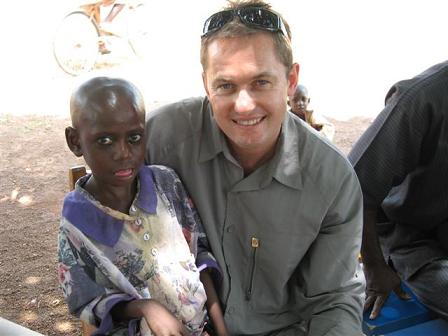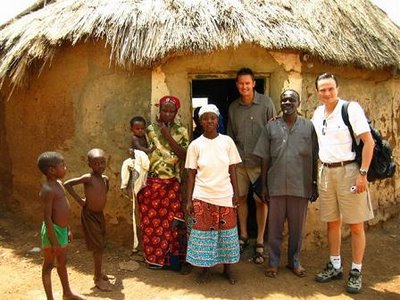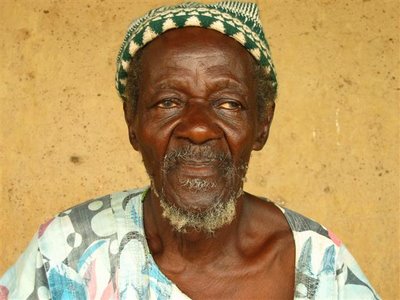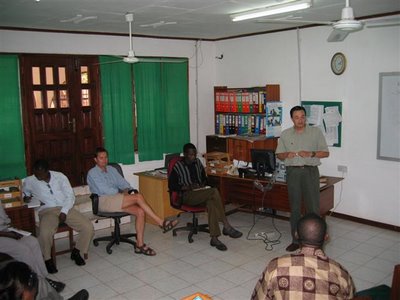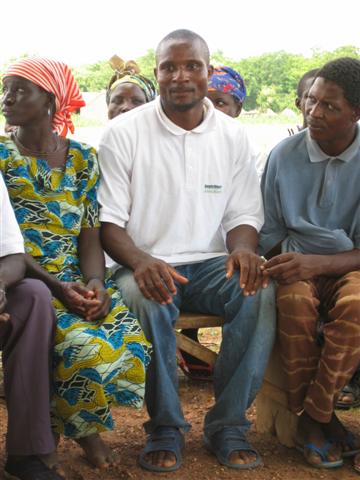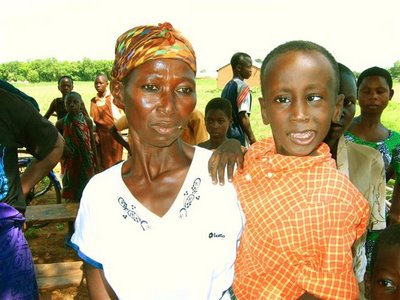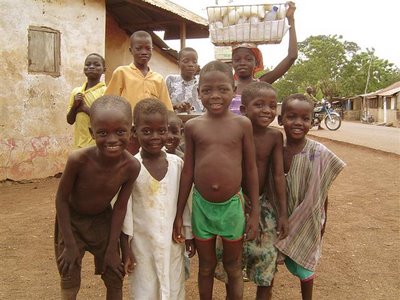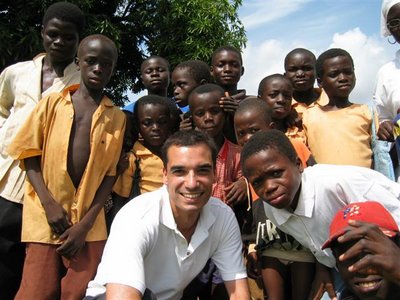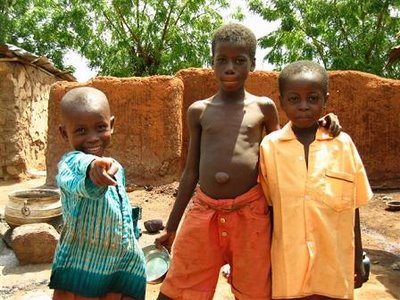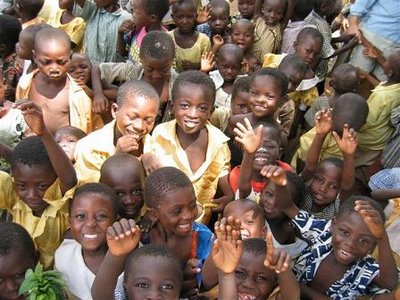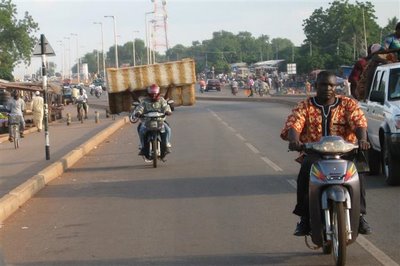Note: this posting was originally without a number of pictures. I have now added them as of Monday 10 July.Here are a few facts about Ghana, as sent to me in a text message by my friend James, a partner in Transaction Services:
* Ghana has a population of 21.1 million people
* Their life expectancy is an average of 57 years
* It has lost 79% of forests over the last century due to dependence on wood burning
* 78% of the population survive on less than $2 a day
Based on these facts, life in Ghana should be pretty miserable. Yet here are a few other facts:
* Ghanaians are apparently the second happiest nation on earth (don’t ask me who no 1 is)
* We have only experienced warmth from the locals
* Earlier in the week, when Ghana’s Black Stars played Brazil, Accra was in a state of frenzied excitement I have never seen before! For hours people were calling in to the chat shows on the radio saying they were going to win, with the clear consensus being 2-1, but in the end they lost 3-0. Even when they lost, people were happy and proud of their team.
This week has been a very busy week, which has meant no updates to the blog until today, Saturday. So here’s four day’s worth of updates.
Tuesday was a shock to the system: we visited a self-help group where mentally ill people get together within the community as a support network and are provided with drugs by Basic Needs that would otherwise have to be paid for (some drugs are not available free from the government). Robbie immediately took a shine to a kid with epilepsy:

After this self-help group we visited two mentally ill people at their homes. We took the Land Rover into a very poor area, but everyone had football fever given the impending match, so clearly we had to join in…!

First was the kid and his older brother, both who had epilepsy. I have never seen such poverty: they lived with their mother (who had five kids, four by different fathers) in a ‘shack’ with three rooms, where a total of 20 people lived. Because they had not had access to community based mental health care, they had not been aware that there were drugs that could control the epilepsy, which meant they were excluded from school. Here are some pics:
This is their ‘house’ – if you could call it that. Note Robbie with his Ghana Black Stars hat!

Mother, younger son, older son
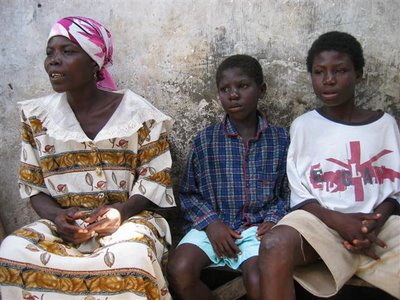
Their grandmother

Other family members – this kid was so affectionate towards his mum!

Jose-Luis found some football crazy kids – seconds after this one was taken, they started jumping and screaming in excitement underneath the Ghanaian flag! 
Next visit was to a mother and her 32 year old mentally retarded daughter. The daughter could hear fine, but could not speak:

Her wrist was bent like that of a spastic. She was born healthy, but at the age of two had a convulsion during which she broke her wrist. Unfortunately this was never fixed, so now also lives with this physical disability.
The next visit was to an ‘outreach’ clinic. This is a community-based clinic that tries to provide care in the community itself (bringing the doctor to the locals rather than getting people to come to hospital). The doctors attend once a month, and it is also manned by a number of volunteers. The doctor we spoke to had been in since early in the morning and was trying to clear 80-90 patients before kick-off! We managed to get back in time for the game…
I love the look of the doctor - he was in mid-consultation with when Robbie walked in wearing his Ghana Black Stars hat!

Wednesday was a very different day. Ghana has three psychiatric hospitals, of which two are in Accra, the capital. We visited both, and each had a different atmosphere.
The morning was spent in Pantang Psychiatric Hospital. I can’t describe why, but it felt like something from Vietnam in the seventies. Maybe it was because it was all white, in an open space with lots of grass, very run down (it was built in the mid-70’s) and lots of barbed wire. Here’s a picture of the place:

The nurses took us round the chronic women’s ward which was for mentally ill patients in long term care. Some had been there for up to twenty years, and realistically had no hope of ever returning into the community:

The nurses were fantastic – the nurse in the left of this picture had been working at the hospital for much of her life, and she loved it, but pay was tough and last month didn’t receive any salary due to an administrative problem. She was so enthusiastic about her job and about teaching the two young nurses in the middle of the picture:

We met this woman who had been in the chronic ward for a year and a half. She came from Burkina Faso (border’s Ghana in the North), but neither Robbie nor me could understand what was wrong with her even though she spoke good English.


We passed the laundry area, so popped in. Ghana is hot and humid, but these women work in another level of heat and humidity! Jose-Luis asked them what they would like to make their job better – I expected them to say air conditioning, but they wanted a radio to listen to the football!

The next stop was to understand the occupational therapy department. This is to help the patients by giving them a task to help them on their road to recovery. For example, drug addicts in rehab often cannot concentrate for more than a couple of minutes, so they are taught to read in the library, whilst patients that struggle to integrate themselves with other patients spend time doing art with others.

We cut short our visit because of time, as the afternoon was spent at Accra Psychiatric Hospital. This is in the centre of Accra and was originally built 100 years ago as a lunatic asylum with high walls to keep the lunatics inside.
It was pretty run down, and the nurse who took us around said the hospital had not been paid by the government for three months.
First visit was to the children’s ward. This was very distressing for all three of us. Most of the children are so mentally handicapped that they will spend their lives in institutional care. The mentally retarded kid I am with in this picture had been living on the streets and was found at the hospital doorstep three weeks ago. He had apparently been very frightened of others when he first arrived, but was now getting more used to other people:

You could see the level of dedication from the nurses, but they had no resources. Many of the children had to wear nappies, but had to make do with donated rags instead.

Next was the geriatric women’s ward. I spoke to a few who could speak English, and received lots of prayers from them.

We then visited the main wards – women and men. These each have 150 patients in a ward, with not enough beds so some have to sleep on the floor. I didn’t take pictures in the women’s compound as some wore no clothes (and I’m not sure they were even aware of this fact).
The men’s compound was originally pretty intimidating – the security gate opens and you enter a compound with 150 mentally ill men of all ages. Very quickly we were made to feel very welcome. Many of the patients were suffering from schizophrenia, or recovering drug addicts. We entered just as they were getting their evening meal.

We all spoke to many patients and had some bizarre conversations:
“What do you do?”
Me: “I help companies in trouble”
“But what is your profession”
Me: “I am an accountant”
“That is excellent, you can work for me in my international company. When can you start!”

Another one was:
“Where do you come from?”
Me: “Where do you think”
“You look very Chinese to me” !!!!
- I have been called many things, but never has anyone said I look Chinese!

Next day was a visit to another self-help group. It is interesting hearing what people’s concerns are: when Humphrey from Basic Needs talked about a small amount of funds being available for the community to fund drugs, one man asked for it to be allocated to him and deposited in an account in his name at Barclays Bank!

We then visited the home of a 21 year old boy called Kwesi. He had been born prematurely, and had oxygen starvation to the brain, resulting in him being mentally retarded since birth. He could not move the right side of his body. His father was a very strong man who had taken so much care of him, with very little money. His biggest concern was what would happen to Kwesi when he and his wife eventually passed away.

It was interesting to hear how the stigma of mental illness affects a family. Kwesi’s mother tried to earn an income selling bottled water, but had been shunned by much of their community who thought Kwesi was a witch, and the water his mother sold would be infected. Basic Needs provided Kwesi with free drugs to control his convulsions.
We moved on to a 23 year old called Seth who has had epilepsy since the age of one.

My ability to ask compassionate questions flew out of the window with my opening question as I sat down in his sitting room and asked “so what it wrong with you then?”. What a plonker! I felt so stupid!
Luckily the atmosphere relaxed and I asked him about the impact his epilepsy had on his life. He no longer goes out of the house and had dropped out of college. Basic Needs provided him with free drugs to control the epilepsy which meant his last fit was over two months ago,
Taking us round was a Community Psychiatric Nurse (CPN) called Agnes. She was fantastic, and really knew her patients and cared for them. I met her on the following day and she said she was a year from retirement. All she wanted to do when she was a child was to be a nurse, and said she had loved her career.

Friday was a short day because two meetings with district heads of clinics were cancelled, but we went ahead with the third. The doctor was a real character who had trained in the Soviet Union and had some great stories to tell.
This has been a long weekend with a public holiday on Monday, so we have travelled east to the Volta Dam. This was built in the 1960’s and is the largest man made lake in the world – from memory it is 400km long and has a coastline of some 5,000km. We stayed at the Volta Hotel that overlooks the dam and on Sunday took a cruise around the lake.


On Saturday night we met a band who were playing at our hotel. One of the singers called Leslie asked our names – because we had just watched France beat Brazil, Robbie introduced Jose-Luis as ‘Ronaldo’. Bad move – for the entire set, Leslie was shouting out “Ronaldo!”, to the point where on Sunday morning, a hotel guest came up to Jose-Luis, called him ‘Ronaldo’ and said he was sorry his team were out of the World Cup!!!
Back to Accra on Monday night to our apartment. Here’s a picture from the front of our place. Reminds me a bit of Mogadishu, Somalia, in the film ‘Black Hawk Down’…

In all it has been an exciting week but also hard work – I’ve found the heat and humidity gets to you by mid-afternoon, which means it is difficult to concentrate in meetings with hospitals. It has also been a shock to the system, seeing such poverty and suffering, particularly among those who have been rejected by society because of their mental illness.
The week was meant to be an induction into the issues facing Basic Needs, and it has certainly given us a flavour of what we may face over the next two months. Sometimes the scale of what needs to be done feels daunting, but also very exciting!
This week we travel up to Tamale, Ghana’s second largest city in the north of the country, to see what issues face the Northern Region. I’ll also try not to leave it so long to update the blog…

















